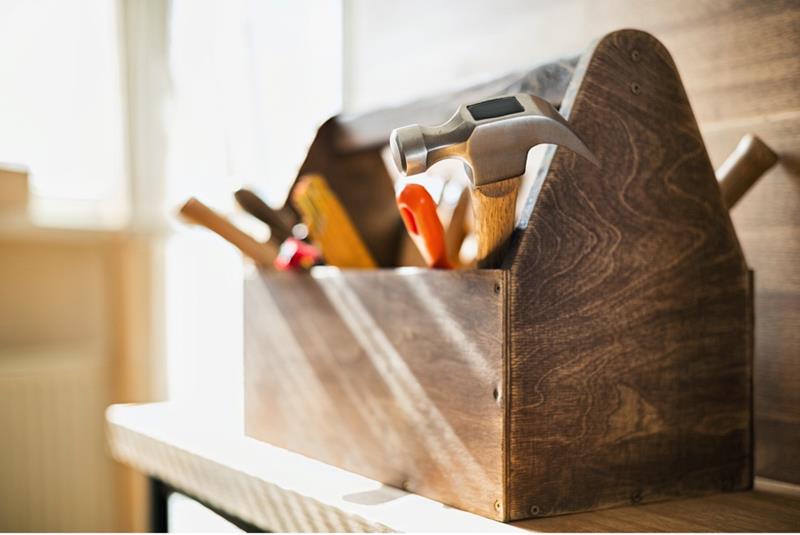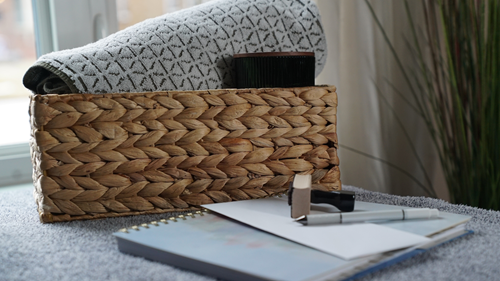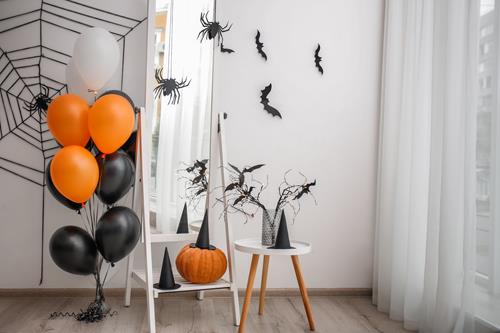One of the inevitable effects of owning your very own home is taking on projects. Sure, there might be some tasks that aren’t as enjoyable (like fixing the garbage disposal or snaking the bathtub drain), but so many home projects are fun.
Plus, they can allow you to put your own unique stamp on the home. Things like adding wall shelves, updating the ceiling light fixtures, and more can help turn your new house into a home.
Taking on projects – big or small – will probably require some help in the form of a basic toolkit. Take a look at the most essential tools every new homeowner needs.
The Basics
If you have absolutely no tools, it’s best to start with the basics. These are the things you will absolutely need at some point – guaranteed!
Hammer – Having a hammer on hand is crucial for projects big and small. You’ll use it for things like hanging photos or shelves, assembling furniture pieces, or fixing little things around the house. If you have nothing in your toolkit, a hammer is a great place to start.
Tape measure – Another essential is the tape measure. This household staple will come in handy for decorating and furnishing your new home, as well as any projects you take on over time. Plus, sometimes you just need to measure things and a ruler just doesn’t cut it.
One flat head and one Phillips head screwdriver – When you’re creating a toolkit for the first time, you probably don’t need an expansive set of screwdrivers; the basics will do just fine. Starting with a flat head and Phillips head gives you enough variety to work with various types of screws.
Various nails and screws – A new home is a blank canvas that you can decorate and furnish any way you want. But without nails and screws, your canvas is going to remain pretty blank. These are essential for a first-time toolkit.
Pliers – Having a set of pliers in your toolkit might not seem super essential at first, but this small tool can come in handy when you least expect it.
Utility knife – Utility knives are a toolkit essential for a variety of at-home projects. Plus, think of all the boxes you’ll have to break down throughout the moving process!
Level – You may think you can just eyeball that picture frame, but let’s be real: just use the level.
Allen wrench – Also known as a hex key, having an Allen wrench on hand is always a good idea. These are used for bolts and screws with a hexagonal socket. You’ll run into these kinds of screws more often than you might think!
Adjustable crescent wrench – Need to fix a leaky faucet or tighten a bolt? Enter the adjustable crescent wrench. This versatile tool is sure to make your life easier.
Extension cord – A good, durable extension cord (or two) is a must-have for any new homeowner. Bonus: you may want to purchase an indoor/outdoor cord, which includes extra protection from things like water and dirt.
Flashlight – Flashlights are not only useful when completing at-home projects and repairs, but also serve as a back-up light source in case your power goes out. You might think you don’t need it, but it’s always smart to have one on hand.
Plunger – This one is pretty self-explanatory. If you don’t think you need a plunger, you’re probably in denial. Just get one, if for nothing else than just in case.
The Next Step Up
Once you’ve graduated from your first-time tool kit, you might want to move on to the next tier of tools. These are things that will definitely come in handy but they aren’t 100% necessary when you’re starting out.
- Cordless drill
- Stud finder
- Clamps
- Wire cutters
- Handsaw
- Socket set
- Wider variety of hardware
- Putty knife
- Goggles and safety gloves
Advanced Tools
So you’ve become a pro in the tool game. What do you do next? These tools are a little more advanced, but can be a big help when you’re working on DIY home projects.
Disclaimer: These tools might be pretty intense for a newbie. Proceed with caution!
- Power sander
- Carpenter’s square
- Extra long level
- Table saw
- Nail gun
Ready to start your next home project? Visit our Home Life page for some inspo. Or, if you’re a first-time homebuyer and looking for financing options, visit our First-Time Homebuyer page.





